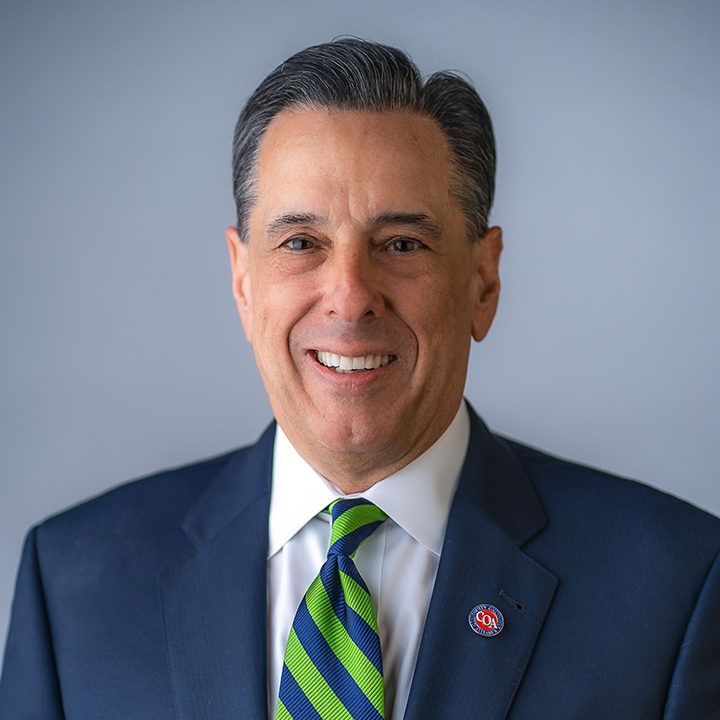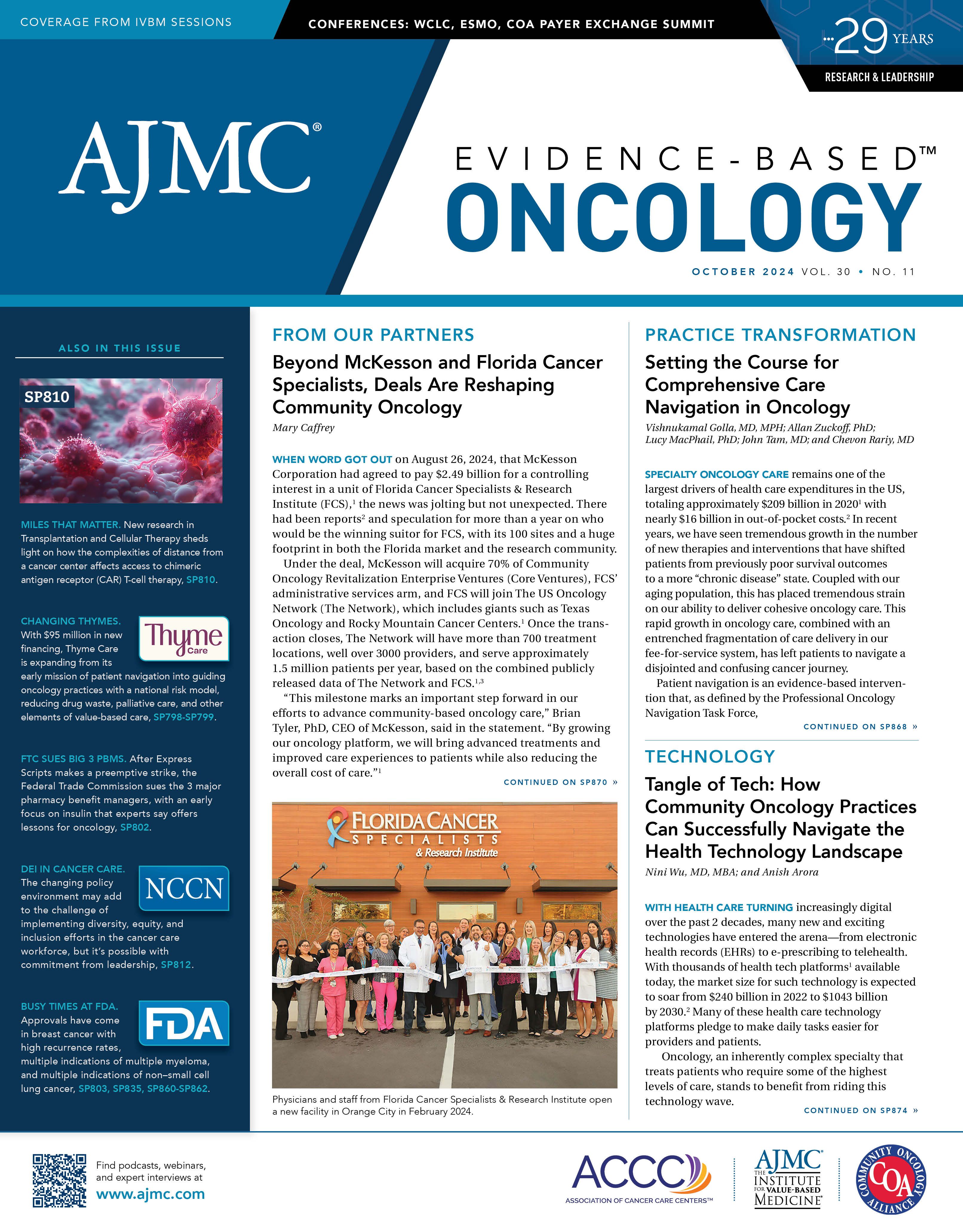- Center on Health Equity & Access
- Clinical
- Health Care Cost
- Health Care Delivery
- Insurance
- Policy
- Technology
- Value-Based Care
In Wake of Express Scripts Suit, FTC Takes On 3 Largest PBMs
Days after Express Scripts sued the Federal Trade Commission (FTC) over the publication of a report criticizing pharmacy benefit managers (PBMs), the FTC took legal action of its own, accusing the 3 largest PBMs of forcing patients to pay higher costs on insulin products to increase their profits.1,2
Ted Okon, MBA | Image credit: Community Oncology Alliance

PBMs, employed by both private companies and government health insurance programs like Medicare, play a key role in negotiating drug prices with manufacturers, reimbursing pharmacies, and determining which medications are covered and how much patients will pay for them. PBMs have long been seen as the “middlemen” getting in the way of lower drug prices, with negotiations often resulting in cheaper products, such as biosimilar and follow-on insulins, being placed on formulary tiers with lower rebates in favor of more expensive innovator agents, thus disincentivizing providers from prescribing products with lower list prices.3
The FTC filed an administrative complaint that targets CVS Health’s Caremark, Cigna’s Express Scripts, and UnitedHealth’s Optum Rx, as well as any subsidiaries they have created to manage drug negotiations. The 3 entities control 80% of prescriptions in the US.
The move comes after the FTC conducted an investigation in 2022 that required the 6 largest PBMs to submit detailed records and answer questions about their business practices to shed light on how PBMs’ market power affects pharmacies, patients, and overall drug costs.1
FTC’s 5 commissioners voted on the action, with the 3 Democrat appointees favoring the measure and the 2 Republicans recusing themselves.2
Over the past 2 decades, pharmaceutical companies raised insulin list prices annually, making a century-old drug increasingly unaffordable.4 From 2012 to 2019, gross sales for 4 leading insulin products in the US more than doubled from $13 billion to $27 billion, while net sales, after rebates and discounts, dropped by approximately 40%, from $8 billion to $5 billion. By 2019, price concessions exceeded 80%, with over two-thirds negotiated between manufacturers and commercial or Medicare Part D plans. These negotiations are typically facilitated by PBMs.
High insulin prices have been a hot topic in recent years, as reports have come out showing that patients with diabetes are often rationing or forgoing insulin treatments to save money, which can lead to devastating health consequences, including nerve and vision damage, amputations, and kidney and cardiovascular disease. A report from JAMA found that 1 in 5 US adults with diabetes under 65 years old reported rationing insulin because of cost.5
Additionally, these adults are ineligible for the $35 out-of-pocket limits for insulin products that were set for Medicare beneficiaries through the Inflation Reduction Act.6 Although Congressional leaders have introduced legislation to extend the $35 caps to patients enrolled in commercial plans, these efforts often get stalled in committee hearings.7
The FTC said that it is not targeting drug manufacturers for rising insulin prices, but it has not ruled out taking legal action against those entities in the future. However, in 2022, 3 of the biggest insulin manufacturers (Eli Lilly and Company, Novo Nordisk, and Sanofi) have all made pledges to significantly lower the list prices of their reference insulin products.8-10
Ted Okon, MBA, executive director for the Community Oncology Alliance (COA), is among those who have spent years seeking PBM reform. In an interview with AJMC, Okon said he the FTC’s action was not a surprise—nor was he surprised the focus was on insulin, a high-profile area where the agency has good data. In fact, he said, Express Scripts likely saw FTC action coming and moved first.
“What’s very interesting, very interesting here, is that it was specifically also against their 3 group purchasing organizations (GPOs). So those PBMs have corporately affiliated GPOs, 2 of which are offshore. And the speculation is the reason they are offshore is not for tax advantages, but to basically shield what is going on through those offshore entities,” Okon said.
He noted the FTC lawsuit follows a contentious hearing before the House Committee on Oversight and Accountability, which resulted in the CEOs of the top 3 PBMs being sent letters suggesting they change their testimony to what is actually true.
“There is just a crescendo of things that are happening, and I think this FTC lawsuit is just another nail in the coffin,” Okon said.
David Eagle, MD | Image credit: NYCBS

David Eagle, MD, a medical oncologist and chair of Legislative Affairs and Patient Advocacy at New York Cancer & Blood Specialists agreed in a separate interview that the FTC lawsuit is “emblematic that the PBM model is broken, and people are starting to take wake up to that fact.”
The basic problem with PBMs, he said, is that they were created to lower drug prices, but today they are having the exact oppositive effect due to rebating practices. PBMs benefit from promoting the most expensive products on their formulary so they capture higher rebates. “It’s not just true for insulin—it’s true for a lot of drugs—and it’s definitely true for oncology drugs, too,” Eagle said.
What Reforms Are Needed
Other experts have called for PBM reform, including Julie Reed, executive director of the Biosimilars Forum, who authored an opinion piece criticizing PBMs for favoring expensive, high-rebate drugs over cost-effective biosimilars, despite their potential for considerable savings.11 In the
piece, Reed emphasized the need for urgent reforms to address what she described as PBMs’ monopolistic practices, which hinder patient access to affordable medications. Reed urged government leaders to take decisive action to resolve these PBM-related issues.
Julie Reed | Image credit: Biosimilars Forum

“The Biden administration, Congress, the Federal Trade Commission, and others need to do everything in their power to address the anti-competitive behaviors of the PBM monopoly and control over the medicines people can access. Time is of the essence: every day without reform deepens the affordability crisis for Americans dealing with a convoluted, misaligned system for their prescription drugs,” wrote Reed.
Eagle said many of the current efforts in Congress focus on transparency, and while that is important, increased transparency by itself is not enough to fix all the problems that PBMs have caused.
Under the current system of rebates, huge payments tied to the most expensive drugs flow back to the PBMs and perhaps to employers to reduce premiums. But the price for patients who take the drugs is ever-higher cost-sharing. This, Eagle said, “creates a system where the sick subsidize the healthy, and that’s not how insurance should work.”
Staff writers Julia Bonavitacola and Mary Caffrey contributed to this report.
References
1. Jeremias S. Express Scripts sues FTC over PBM report. AJMC.com. September 17, 2024. Accessed September 29, 2024. https://www.ajmc.com/view/express-scripts-sues-ftc-over-pbm-report
2. Abelson R, Robbins R. F.T.C. accuses drug middlemen of inflating insulin prices. New York Times. September 20, 2024. Accessed September 20, 2024. https://www.nytimes.com/2024/09/20/health/ftc-drug-price-inflation-insulin.html
3. Caffrey M. FTC inquiry into PBMs to include a look at specialty drug lists. The Center for Biosimilars®. June 9, 2022. Accessed September 20, 2024. https://www.centerforbiosimilars.com/view/ftc-inquiry-into-pbms-to-include-a-look-at-specialty-drug-lists
4. Feldman WB, Rome BN. The rise and fall of the insulin pricing bubble. JAMA Netw Open. 2023;6(6):e2318074. doi:10.1001/jamanetworkopen.2023.18074
5. Fang M, Selvin E. Cost-related insulin rationing in US adults younger than 65 years with diabetes. JAMA. 2023;329(19):1700-1702. doi:10.1001/jama.2023.5747
6. $35 insulin cap for private sector blocked from budget reconciliation bill. The Center for Biosimilars. August 8, 2022. Accessed September 20, 2024. https://www.centerforbiosimilars.com/view/-35-insulin-cap-for-private-sector-blocked-from-budget-reconciliation-bill
7. Jeremias S. Senators introduce bill to establish insulin cap for commercial plans. The Center for Biosimilars. April 25, 2023. Accessed September 20, 2024. https://www.centerforbiosimilars.com/view/senators-introduce-bill-to-establish-insulin-cap-for-commercial-plans
8. Jeremias S. Lilly plans to launch insulin biosimilar at 78% discount to Lantus. The Center for Biosimilars. March 2, 2023. Accessed September 20, 2024. https://www.centerforbiosimilars.com/view/lilly-plans-to-launch-insulin-biosimilar-at-78-discount-to-lantus
9. Novo Nordisk to lower U.S. prices of several pre-filled insulin pens and vials up to 75% for people living with diabetes in January 2024. Novo Nordisk. Press release; March 14, 2023. Accessed September 20, 2024. https://www.novonordisk.com/news-and-media/latest-news/lowering-us-list-prices-of-several-products-.html
10. Sanofi cuts U.S. list price of Lantus®, its most-prescribed insulin, by 78% and caps out-of-pocket Lantus costs at $35 for all patients with commercial insurance. Sanofi. Press release; March 16, 2023. Accessed September 20, 2024. https://www.sanofi.com/en/media-room/press-releases/2023/2023-03-16-20-06-43-2629188
11. Reed JM. PBMs aren’t opening access to lower-cost biosimilars. Reform is needed now. STAT. August 1, 2024. Accessed September 17, 2024. https://www.statnews.com/2024/08/01/pbm-biosimilar-drugs-ftc-action-needed-anti-competitive-practices/

